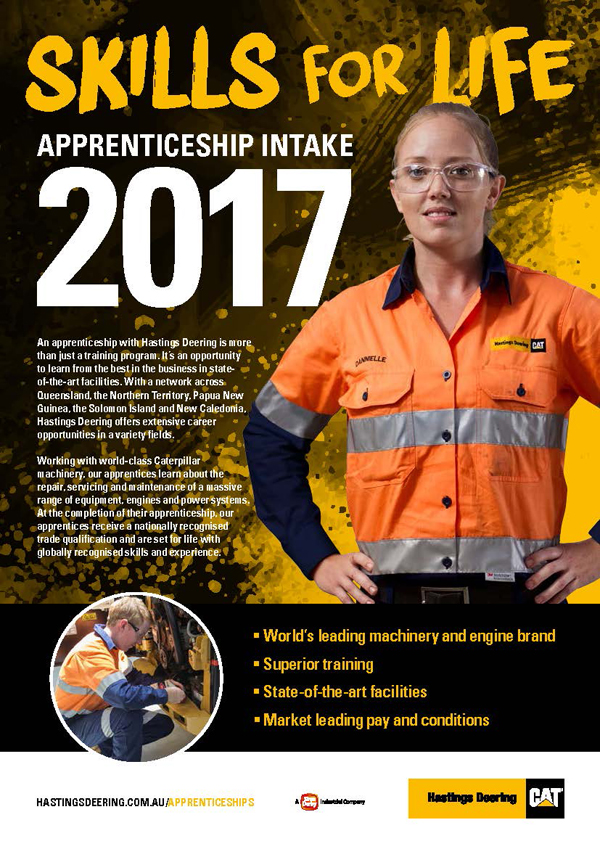3 August 2016
Newsletter Articles
Principal’s Report
Welcome to the second edition of our newsletter for Term three. It has certainly been very busy start to the term with NAIDOC week, PBL trip to the Brisbane Broncos, Girls Rugby League and the Athletics Carnival all occurring in the last three weeks.
Athletics Carnival
Last Friday we held our annual inter-house athletics carnival which also doubled as the District Carnival. It was great to see the participation of our students in as many events as possible. Congratulations to Tobruk who won the day. Thank you to Mr Lines, Mr Webb and staff who once again ensured a very smooth athletics carnival for our school. The attendance of our students on this day was great and ensured great participation in all events. Well done to all involved.
Quadrennial School Review
As I have mentioned in previous editions of the newsletter, as a school we are currently planning our strategic path over the next four years. This strategic process is known as a Quadrennial School Review and upon completion of this plan, it will be a map which our school will follow to ensure that we continue to offer the very best outcomes for the students of Charleville State High School. All staff, both teaching and non-teaching, are currently providing input and I look forward to presenting this plan closer to the end of the term to our school community. The plan is inspiring, and our staff have been working hard to ensure that it is a living document and a viable blueprint for the future of our great school to achieve the best outcomes for our students.
“The Charleville High Way”
As you are no doubt aware the “Charleville High Way” encompasses our 4Be’s and 4V’s which are the expectations of our students while in attendance at school and school events. The Positive Behaviour for Learning committee has been working hard to ensure that “The Charleville High Way” is highly visible around the school. You will have noticed the new mats that are at the office and the library, and also our 4Be’s and 4V’s are also placed on the walkways around the school to act as a visual reminder to students of what is expected at Charleville State High School.
Facilities News
I am pleased to announce that we have been successful in obtaining a grant from the Department of Education and Training to upgrade the Junior Secondary Precinct (Quadrangle between A and B Block) and also to upgrade the tuckshop. This State Government funding, along with funding from the school, community gambling fund and the P and C, will provide up to $550,000 for us to ensure that we can upgrade these two areas. This is an important part of our commitment to ensure that we have quality assets that reflect the quality learning within our classroom .
The tuckshop has long been a project that the P and C have sought to upgrade and this money will in part be used to build an extension on the tuckshop and also to upgrade existing fixtures and fittings. The proposal for the area between A and B Block is to put down a synthetic surface and have a large covered area above to give our students protection from the elements. We will put in new tables and also include handball courts for our students.
This is very exciting news, and the project has a delivery date of the end of the financial year however most work will likely occur over the Christmas vacation. The upgrade of this area will ensure our facilities are second to none.
I would also like to congratulate our grounds and facilities staff who have the school looking fantastic at this time of year.
Attendance
Our attendance to start the term has been a little disappointing. In the first three weeks, we have only averaged 86% attendance, which is well below our normal attendance percentages. Last week was a better week with 88%, far more reflective of our current attendance trends. Could I please ask that you talk to your students about the importance of making every day count, and in particular ensuring that they are school to ensure that gaps do not appear in their learning. Research shows that school attendance leads to positive student outcomes, and can help children to build social and emotional skills.
The Department of Education and Training has developed a range of free resources to promote the importance of going to school, every day. Check out the new resources and see if you can spot some of your favourite NRL footy players — visit the Every day counts website. The new Every day counts resources, developed with the input of Solid Pathways Students, includes an animation, comic book, posters, as well as tips to help encourage students go to school every day.
http://www.everydaycounts.eq.edu.au/
http://www.indigenous.education.qld.gov.au/school/Pages/solid-pathways.aspx
I would like to congratulate A2 and T3, our best performing Form Classes for attendance last week. Each week we provide attendance awards recognising those groups that have the best rates . Our students deserve the best opportunities, and we need to ensure that they are at school each and every day (except in cases where they are unable to be, e.g., illness, etc.).
Community Education Counsellor
I am pleased to announce that Jolene Russell has been appointed as the Community Education Counsellor. Jolene will begin this role towards the end of August and is very enthusiastic about joining our school and fulfilling this very important role. Please join me in welcoming Jolene to our school.
Parents and Citizens Association
Just a reminder that the August meeting of the P and C will be held on Wednesday the 10th of August, beginning at 5.30 pm in the Administration Block. As always we look forward to welcoming our returning members and always encourage new members to attend.
It is important to us that every day, in every classroom, every student is learning and achieving. Charleville State High School thanks you for your support in this partnership.
Marcus
Junior Secondary Update
Transition Information
Welcome back to Term 3 from the Junior Secondary Team! Isn’t this year flying! It is that time of year again when we starting planning for the following year. This term is particularly busy for the Junior Secondary team with our parent information sessions and student enrolment interviews for 2017 commencing, but most importantly our first Transition Day for the Year 6 cohort!
Charleville State High School is looking forward to meeting our prospective parents for Year 7 next year to share how we will cater for your students learning needs. All are welcome to attend the information session to be held at Charleville State High School, Tuesday 9th August at 5pm. To continue to make the transition from primary school to secondary school as relaxed as possible, Charleville State High School will be holding our first Transition Day on Wednesday 17th August. All current Year 6 students are invited to attend the school for the day, where they will complete a number of different activities.
All of us from the Junior Secondary Department are looking forward to meeting with the students and parents from Year 6 over the coming weeks.
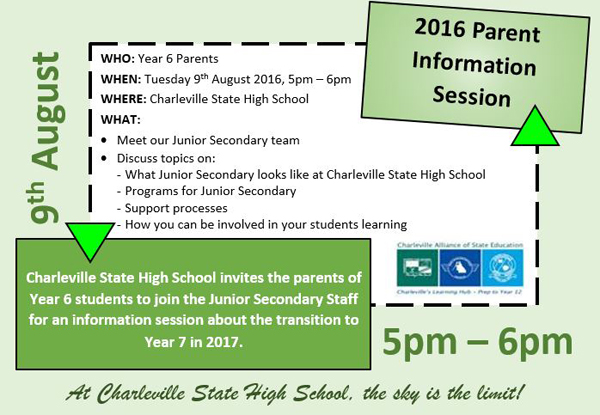
Year 9 Camp
This year our Year 9 students have the opportunity to participate in a school camp to Columboola Environmental Centre, near Miles, from the 18th October – 21st October 2016. Students will build on their independence and leadership skills through a variety of activities including archery, canoeing, high and low rope activities, astronomy, raft building, and many more. Students will have an authentic campout experience, camping in safari tents for nights and participating in campfires. Letters of interest have been handed out and a $50 deposit is required by this Friday, 5th August, to secure their place on this camp. If there are any further questions please feel free to contact Katherine Goult or Sabrina Goodingham on 4656 8888.
Update - Charleville Mates Program
The Charleville Mates Program continues to excel, with friendships developing among our high school students and the primary students at Charleville State School, inside and outside of school. Our Charleville Mates students were most excited to be able to assist at the Charleville State School athletics day this term, despite the extremely chilly weather! It was great to walk around and see the smiling, albeit, freezing grins being shared by all the students. Due to NAIDOC Week activities and our Athletics Day, the Charleville Mates Program had to be postponed for 2 weeks, much to the disappointment of all students involved. We are looking forward to recommencing it this week. This term we are also excited to be branching out our program to St Mary’s Private School where we hope to develop as many friendships as we have at Charleville State School.
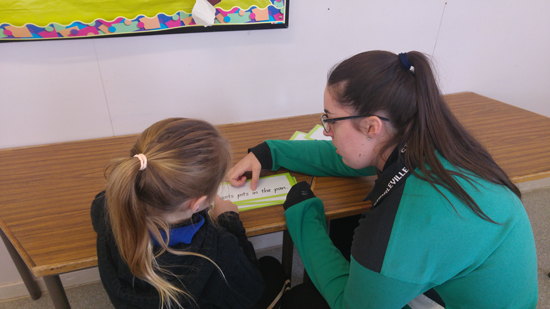
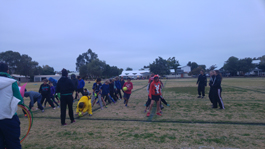
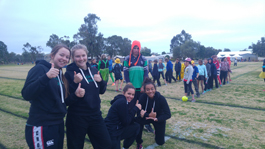
Sabrina Goodingham
Head of Department – Junior Secondary
Year 10 2016 - SET Planning and senior subject selections
Year 10 Students
The focus for our Year 10s this term is developing their plans for their future. This focus will culminate in their SET Planning interviews on Tuesday 23rd August. A letter has been sent home to indicate who will conduct the interview with your student and yourself.
But what is a SET Plan? Why do we place such value on this event?
What is a SET (Senior Education and Training) Plan?
As part of planning for the transition to post-school options, Queensland students in Year 10 complete a Senior Education and Training (SET) plan. Essentially, the SET plan includes what the student's goals are, and what pathways they're going to take to reach those goals. Parents and school staff are involved in helping students put these plans together.
While the SET plan helps students to make decisions about their future, they can still make alterations to their SET plan if they change their minds. The plan is a fluid document, based on Oneschool, and should be updated to reflect changing student ideas and aspirations throughout Year 11 and 12.
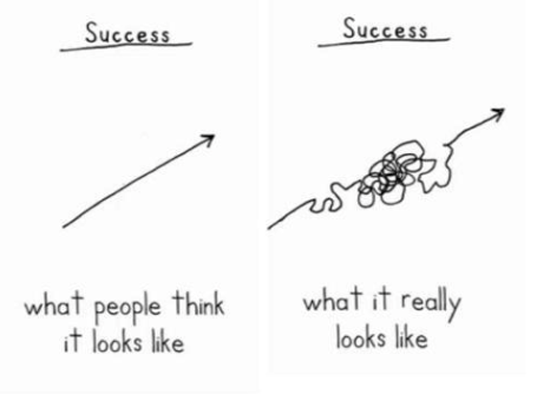
Why is SET Planning so important?
By the time your child is finishing Year 10, you and your child should be planning and preparing for life after school. It is important to talk to your child about what their interests, abilities and aspirations are, and find out about the options available to them.
What needs to be considered? It is important that students consider the following:
- occupations and career pathways
- the education and training requirements needed to achieve selected goals, such as subject prerequisites
- the full range of learning opportunities available
- the value of different forms of learning
- tertiary entrance procedures, including the range of options
What happens next?
- Our Year 10 will be exposed to a range of specific careers and senior subject lessons in Pastoral Care from Week 1 Term 3 through to SET Planning interviews in late August. Students will work on developing personal goals, identify potential interests for the future and enter information into their Oneschool profiles.
- Participate in senior subject lessons and activities across all faculties lead by Heads of Department and senior teachers.
- Parents will be sent a letter outlining who will interview their student, in their presence, to complete the SET Plan and select senior subjects for study in 2017/18.
- Interview time to be selected by parents for Tuesday 23rd August.
- SET Planning interview and subject selections on Tuesday 23rd August.
- Students continue to develop skills to help in senior subjects across Semester 2.
If you would like any further information regarding the topics above please don’t hesitate to contact the school. Together we can make a difference in the lives of our future leaders.
Regards
Donna Gilvarry
Deputy Principal
STUDENT SERVICES NEWS
STUDENT SERVICES- UPCOMING EVENTS
CWAATSICH HEALTH MUSTERS- The final Health Muster has not gone ahead as planned at the end of July. I will let parents know once I have confirmation from CWAATSICH of a new date.
Most students have now participated in the musters. If you have not returned your forms and would like your child to be seen by a variety of health care providers please get them back to the office as soon as possible. It is not too late to be included regardless of what year level you are in- we will make sure every student who has returned a form has an appointment. If you would like another permission form or want to check if your child has returned their forms please contact Mrs Jenni Peters.
RAISING A ‘GOOD’ CHILD
Many parents focus attention on their children’s grades and extracurricular activities, such as by making sure kids study, do their homework, and get to soccer practice or dance lessons prepared and on time. But all too often, we forget to put time and effort into nurturing another component of child success and development -- one that is just as important, and perhaps even more essential, than good grades, awards, and trophies -- being a good person.
In today’s “me, me, me” and “I’ve gotta have it now” society, it can be easy to forget the importance of countering these pervasive messages of instant gratification, consumerism, and selfishness. If we want to raise children who are pleasant company and genuinely nice people, we can help guide our kids toward habits and behaviors that promote positive character traits like kindness, generosity, and empathy for those who are less advantaged or who need help.
As C. S. Lewis famously said, “Integrity is doing the right thing, even when no one is watching.” How can we raise a good child, one who will do the right thing, even when no one may see them do it, and when there may be no reward? While there is no guaranteed formula (if only!), here are some ways parents can build good character and help their child grow into a good person.
- Nurture empathy in your child
Emotional intelligence and empathy, or the ability to put oneself in someone else’s shoes and consider their feelings and thoughts, is one of the most fundamental traits in good people. Studies have shown that having a high emotional quotient -- that is, being able to understand one's own feelings and the feelings of others and having self-control and being able to control one's own emotions -- is an important component of success in life. To encourage empathy in your child, encourage your child to talk about their feelings and make sure that they know that you care about them. When a conflict occurs with a friend, ask them to imagine how their friend might be feeling and show them ways of managing their emotions and work positively toward a resolution. - Encourage them to be kind
While stories about kids engaging in bullying and other bad behaviour often make headlines, the truth is that many kids quietly perform good deeds in the ordinary course of their lives, whether it’s making a friend feel better when they’re down or doing volunteer work. As you encourage positive behaviours such as doing something to make someone’s day better (even something as small as patting a friend on the shoulder when he’s sad), be sure to talk about what negative effects behaviours like gossiping or bullying have on both sides (both those who are, say, bullied and those who do the bullying), and why and how it hurts people. - Teach them to volunteer
Whether your child helps an elderly neighbour or helps you pack some canned goods into boxes for donation to family shelters, the act of volunteering can shape your child’s character. When kids help others, they learn to think about the needs of those less fortunate than they are, and can feel proud of themselves for making a difference in others’ lives. - Don’t reward them for every good behaviour or act
of kindness.
An important thing to remember when encouraging kids to help others is to not reward them for every single good deed. That way, your child won’t associate volunteering with getting things for themselves, and will learn that feeling good about helping others will be in itself a reward. That’s not to say you shouldn’t occasionally take your child out for a special treat or give him a gift for helping others AND for working hard and studying hard; kids love encouragement, and thrive on parents’ approval. An occasional reward is a great way to show him how thankful you are for the good things he does. - Teach them good manners.
Does your child routinely practice the fundamentals of good manners such as saying “Thank you” and “Please”? Do they speak in a polite manner to people and address elders as “Mr.” and Ms.”? Do they know how to greet people properly, and are they familiar with the basics of good table manners? Are they a gracious loser when they play a game with friends? Remember that you are raising a person who will go out into the world and interact with others for the rest of their life. - Treat them with kindness and respect
The most effective way to get kids to speak to you and to others in a respectful way and to interact with others in a nice manner is by doing exactly that yourself when you interact with your child. Think about how you speak to your child. Do you speak harshly when you’re not happy about something? Do you ever yell or say things that are not nice? Consider your own way of speaking, acting, and even thinking, and try to choose the friendly and polite tone and manner with your child, even when you are talking to him about a mistake or misbehaviour. - Don’t be shy about disciplining your
child
Parents who hold back on giving children boundaries or firmly (but lovingly) correcting bad behaviour may actually be harming their child with good intentions. Children who are not disciplined are unpleasant, selfish, and surprisingly, unhappy. Some of the many reasons why we need to discipline include the fact that children who are given clear rules, boundaries, and expectations are responsible, more self-sufficient, are more likely to make good choices, and are more likely to make friends and be happy. As soon as you see behaviour problems such as lying or backchat, handle them with love, understanding, consistency and firmness. - Teach them how to be thankful
Teaching your child how to be grateful and how to express that gratitude is a key component of raising a good child. Whether it’s for a meal you’ve prepared for dinner or for a birthday gift from Grandma and Grandpa, teach your child to say thank you. For things like gifts for birthdays and holidays, be sure your child gets into the habit of writing thank you messages. - Give them responsibilities around the
house
When children have an expected list of age-appropriate chores to do at home, such as helping set the table or vacuuming the floor, they gain a sense of responsibility and accomplishment. Doing a good job and feeling like they are contributing to the good of the household can make kids feel proud of themselves, and help them become happier. - Model good behaviour
Consider how you interact with others, even when your child isn’t watching. Do you say “Thank you” at the checkout? Do you steer clear of gossip about neighbours or co-workers? Do you use a friendly tone when addressing waiters? It goes without saying that how you behave directly influences how your children will be. If you want to raise a good child, conduct yourself in the way you want your child to act.
For more information on this article visit the 'Very Well' website.
http://www.verywell.com/
Until next time,
Jenni
Deputy Principal- Student Services
Teaching and Learning @ CSHS
We are all trying to help our students make the most of their time at school. The question should also be, what can any student do to ensure they are as successful as possible? What advice and guidance can we give? What good habits should we be encouraging and supporting our students to develop to ensure success in the future?
How can our students be successful?
- Work hard
- Have clear goals and work towards them
- Do everything to the best of your ability
- Ask for help when you need it
- Manage your time effectively
What is the most important thing to do?
The most effective thing a student can do is to find the best way to manage their time effectively and know what they want to work towards.
Before you can even begin to manage time, you must learn what time is. A dictionary defines time as "the point or period at which things occur." Put simply, time is when your life happens.
There are two types of time: clock time and real time. In clock time, there are 60 seconds in a minute, 60 minutes in an hour, 24 hours in a day and 365 days in a year. All time passes equally. When someone turns 20, they are exactly 20 years old, no more or no less.
In real time, all time is relative. Time flies or drags depending on what you're doing. Two hours at exam time can feel like 12 years. And yet our 12-year-old children seem to have grown up in only two hours.
The good news is that real time is mental. It exists between your ears. You create it. Anything you create, you can manage. It's time to remove any self-sabotage or self-limitation you have around "not having enough time," or today not being "the right time" to take advantage of an offer or start a maths assignment.
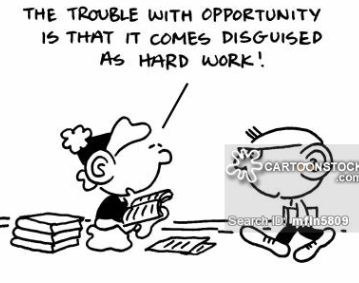
How can students manage this elusive concept of time though?
Seven Suggestions for Effectively Managing Your Time
1. Be Organized
- Use time saving tools: appointment calendars, "to do" lists, e-mail, answering machines, file folders, etc.
- Have an organized workplace (don't waste time constantly looking for your work).
- Use your calendar for everything, including listing study time.
- Use "to do" lists for both long-term and for each day/week.
2. Plan Ahead (Schedule it and it will happen!)
- Determine how long your tasks will take
- Consider whether any activities can be combined.
- Determine if big tasks can be broken down into smaller tasks that may be easier to schedule (such as studying for exams and visiting the library as part of an assignment to write a term paper).
3. Prioritize Your Tasks
- Use an A-B-C rating system for items on your "to do" lists with A items being highest priority.
- Set goals for both the short term and long term as to what you want to accomplish.
- Look at all of your "to do’s” to gauge the time requirement and whether additional resources will be needed to accomplish them (if yes, schedule time to obtain those resources). Don't postpone the small tasks (a sense of accomplishment is good and overlooked small tasks can become larger tasks.)
4. Avoid Overload
- Include time for rest, relaxation, sleep, eating, exercise, and socializing in your schedule but don’t let these overtake your key tasks
- Take short breaks during study and work periods.
- Don't put everything off until the last minute (for example, don't cram for exams).
- Learn to say "no" when appropriate and to negotiate better deadlines when appropriate.
5. Practice Effective Study Techniques
- Have an appropriate study environment.
- Split large tasks into more manageable tasks.
- Read for comprehension, rather than just to get to the end of the chapter.
- Be prepared to ask questions as they come up during study, rather than waiting until just before an exam.
- Do the most difficult work first, perhaps breaking it up with some easier tasks.
- Don't wait until the last minute to complete your projects.
- Read the syllabus as soon as you get it and note all due dates (and "milestone" times) on your calendar.
- Be a model student! (be attentive and participative in class, and punctual, prepared, and eager to learn)
6. Be Able to be Flexible
- The unexpected happens (sickness, car troubles, etc.); you need to be able to fit it into your schedule.
- Know how to rearrange your schedule when necessary (so it doesn't manage you - you manage it).
- Know who to ask for help when needed.
7. Have a Vision (why are you doing all of this?)
- Don't forget the "big picture" - why are you doing the task - is it important to your long-term personal goals?
- Have and follow a personal mission statement (personal and career). (Are your activities ultimately helping you achieve your goals?)
- Know what is important to you. (What do you value most?)
- Have a positive attitude!
WHAT DO STUDENTS NEED TO FOCUS ON?
STUDENTS AND ASSESSMENT
Students will be provided with a copy of their assessment due dates for Semester 2. This includes exam dates, when drafts are due and any other tasks they are required to complete across their chosen courses of study for this semester. If you have not sighted a copy of this document please check your student’s diary or ring the school and we can provide a hard copy to put on the fridge.
Requirements for senior students and assessment
- Assessment needs to be attempted on or before the due date (including exams and oral presentations)
- Assessment must be able to marked against all criteria – i.e. a name on a piece of paper is not enough to be given a grade for an assessment piece
- Assessment must be the student’s own work, not that of anyone else – e.g. plagiarised.
- Assessment will be submitted by all students, even if after the due date, to ensure a full range of skills are demonstrated for effective feedback for all students
- Work submitted after the due date may not be able to be given a grade
- Late assessment will incur 15 points per piece as an element of the Senior Student Accountability Program (SSAP)
What can senior students do to help themselves?
- Attend school and classes regularly (must be a minimum of 90% - unexplained absences will incur 2 points per absence as a part of the SSAP, and possibly lead to a cancelation of the enrolment due to a lack of engagement with the educational processes provided and course coverage)
- Plan ahead - use the assessment dates and planner given out last week to help organise your time for Semester 1 and map out when you will need to work on assessment
- Attempt all work, at school and home, set by staff
- Seek feedback and ask questions about all tasks – see your teachers before or after school, during lunch breaks or in class if there are opportunities to do so
- Submit full drafts when required
- Submit all tasks on time – including sitting exams and presenting oral tasks
- Talk to staff if there are any concerns well before the due date
- Attend study / homework club for further help (need to have submitted a permission form – collect one from Mr Kohli if you want to participate)
- Apply for an extension (at least a week before the due date) if there is evidence to support the application. See Mr Kohli, Head of Department Senior Schooling, if you need to request this option.
How can you help your student through the stress of senior studies and assessment?
- Know when their assessment due dates are and help plan
- Ensure they are getting quality sleep
- Ensure they are eating well
- Ensure they have some ‘down time’ – some weeks may have more than others
- Ensure that homework is attempted –e.g. going over class notes and ideas each day
- Ensure they are asking staff for help if they are struggling at home
- Contact the school if you have any concerns
What has been happening at CSHS?
Year 11 Safe Driving Course: On Wednesday 27th July our Year 11 students participated in the theory component of the Safe Driver Program. Delivered by Michael Stewart, Austrail Training Services, our Year 11s participated in 3 hours of theory, including why accidents happen and how to prevent most of them. Students with a learners licence participated in a practical application of the theory discussed earlier in the week, and learnt many valuable lessons. As with previous students who have participated in the program, our Year 11s learnt the importance of the difference dropping their speed can make, as well as breaking distance and the very real dangers of distraction from texting while driving. Thank you to Michael for his patience in the training process, along with Hand, Heart, Pocket for covering the costs of the course, ensuring that no financial disadvantage stopped students from learning. Importantly this program shows the commitment of the school to looking beyond the normal curriculum to ensure our students have the greatest range of skills possible for what may lay ahead in life.
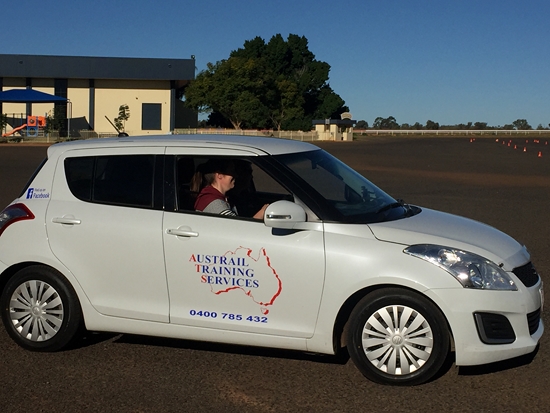
Thank you for your continued support of your student, the school and the educational process. If you would like any further information regarding the topics above please don’t hesitate to contact the school. Together we can make a difference in the lives of our future leaders.
Regards
Donna Gilvarry
Deputy Principal
Open-Air Art Excursion
The Year 11 and 12 Visual Art students are currently studying landscape artworks, with a focus on the Impressionist technique of painting ‘plein air’ – in the open air, and were lucky enough to participate in an open-air drawing workshop at Bradley’s Gully last Tuesday. This excursion allowed the students to create art in the outdoors and to explore the natural landscape in person. The excursion started with a leisurely stroll to the Gully, taking note of the different features of the land while they enjoyed the outdoors. Once they arrived at Bradley’s Gully students each found a spot to bask in the glory of landscape and listen to the techniques, art teacher Miss Goult explained. Students excitedly learned a number of different landscape art techniques, and thoroughly enjoyed the relaxing nature of the excursion, despite the chilly breeze. The day was a success and all students came away with wonderful artworks, and a clear and refreshed mind.
Mrs Goodingham
Head of Department – The Arts
Athletics Carnival
For years, getting six of the best often meant that you were in trouble, but not anymore. Six of the best now means that you are part of this Tobruk juggernaut that has completed its second successive clean sweep of the sporting trophies for the year. With the bell ringing in the background as the final events were being finalised Tobruk finished with a tally of 5,388 points to lead both Kokoda (4748) and Alamein (3825). The win was once again built on the participation of the Torbruk team members in multiple events.
The day started with a great attendance from the students and all starting the day off with the traditional team 100m race. The addition of Quilpie and Tambo added further colour to the day, as well as raising the competition levels in some events. Special mention must go to Katelyn Weigh and Ben McKellar who both added an edge to the girls Under 12 and the boys Under 14 events; in fact Katelyn was the best performed Under 12 girl on the day.
It was not only those two age groups where competition was fierce; in fact there were some outstanding performances from several individuals. There were a total of 27 new records set over the period of the carnival. Some notable performances were by the 18 year old students who set 11 new records. Well done Tayler, Liam and Jim! Aiden Suhan set a new shot put record for the 12 year old boys, bettering the previous mark by over 2m, and Gus Kyeyune bettered the 12 years high jump by 20cm. Other record setters were: Brodie Goodman, Jess Luck, and Thando Mpofu.
Age champions for the day were:
Under 12 – Aiden Suhan and
Michelle King,
Under 13 – Charlie Richards and Olivia
Burke,
Under 14 – Watjerra Briggs and Heidi Mair,
Under 15 – Nicholos Long and Tahlia
Ashford,
Under 16 – Harrison Alick and Charley
Peacock,
Under 17 – Warren Draper and Taylor Doneman
Under 18 – Liam Landsberg and Tayler Burey.
And as a result of their efforts, a large number of students bettered qualifying standards for the South West Track and Field trials to be convened at Chinchilla on 1 and 2 September. Those students to have bettered the standard will be notified this week and letters sent home with the details of the carnival.
Once again, a big congratulation must go to all the students that attended the day. I was one of the largest turnouts for a long time, and this added to the excitement of the day.
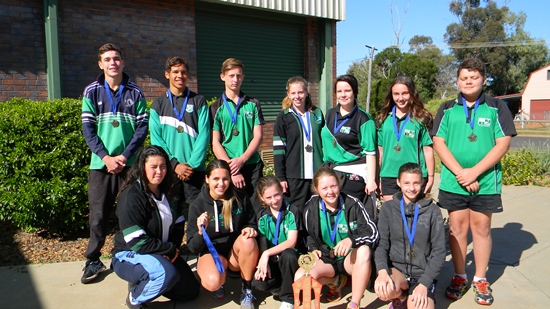
Info from the GO
Building Resilient Families – Parent Information Session
Life for any family includes ups and downs, challenges and unexpected twists and turns in the road. A family’s ability to negotiate this journey and keep going depends on the skills they are working on along the way. There are certain skills and strategies that have been identified as important for the development of resilience. Some are internal skills we can build and develop, whilst others external, which encompass the relationships in children’s lives. Families can draw upon these skills to build successful strategies to bounce back after challenging times. This session will enhance your understanding of the importance of interactions, connectedness and relationships in assisting children to build resilience.
Pathways to Resilience will be visiting Charleville this week. A parent information session on ‘Building Resilient Families’ will be held at St. Mary’s Performing Arts Hall on Thursday 4th August, commencing at 5pm. The information session is open to all parents of both primary and secondary school students and the wider community. If you would like to attend, please contact the school administration team for catering purposes.
Brain Talk for Kids
This week the Pathways to Resilience team will also be delivering Brain Talks to students in Charleville schools. These sessions will teach students about how their brain works and learn how the brain can develop new capacities, with effort and practice. This will hopefully make a big difference in how well kids deal with mistakes and setbacks and encourage them to persist until they achieve mastery. Dr. Judy Willis states that teaching students how the brain operates is essential if we want to empower students. She believes that we must show students how they can control their own cognitive and emotional health, and their own learning.
Congratulations to our newest School Based Trainee - Chelsea Shorten (RFDS)
Thanks to the Royal Flying Doctor Service for their generous support in undertaking another School Based Trainee in partnership with Charleville High School. This partnership arrangement enhances our students’ academic outcomes and gives Chelsea the opportunity to gain a Certificate III in Business Administration while finishing years 11 and 12.
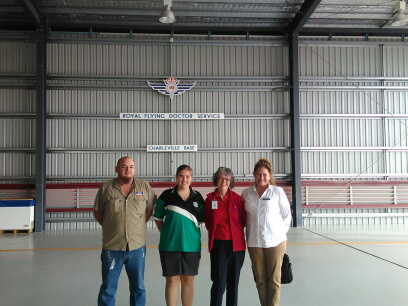
CSHS attend Broncos vs Panthers Match
On Friday 22nd July, 55 students were rewarded with a trip to Suncorp Stadium in Brisbane to watch the Broncos play the Penrith Panthers. The trip was to acknowledge and reward the positive behaviour that students had demonstrated throughout Semester 1. It is fantastic to know that despite our rural remoteness, we can still provide students with a lot of the same opportunities as other schools closer to the coast provide their students.
Although the result went in favour of the Panthers on the evening, from all reports, students had a fantastic time soaking up the atmosphere at Suncorp Stadium and enjoying each other’s company on a long coach trip.
Currently the PBL committee are in discussions as to what the reward will be for students in Semester 2. If you have any ideas that you would like to share, parents and carers are more than welcome to attend the next PBL meeting and have a say in the way we reward and acknowledge the positive behaviour of our students at Charleville State High School.
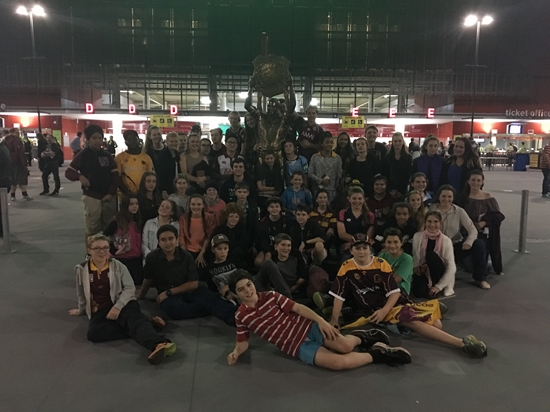
The Reading Corner
Hi students, parents and staff, Week 4 has come around very quickly and the Levelled Literacy Intervention (LLI) classes are engaging more students in reading to not only improve students’ literacy, but also, to hopefully improve their enjoyment and appreciation of books. Lauren and I are hoping to improve our assessment skills and do some training around LLI benchmark assessment; a rigorous and evidence based process which provides a number of testing instruments which match the LLI books the students are reading. It is an assessment system which tests students’ fluency, understanding and word accuracy, and provides a wealth of data on student reading ability and reading age, which better informs our practice as teachers.
STRATEGIES YOU CAN USE AT HOME
Many teenagers are past the age of wanting to be read to, but when they see their parents reading, and engage in discussions about what is in the paper they are learning to engage meaningfully with text and be better informed citizens. Even just having books, zines and newspapers laying around the house can stimulate student interaction with texts, which can only enhance their literacy.
What grade level are most newspapers written at?
This accounts for the fact that the popular blockbuster novels are written at the 7th grade level. People like to read recreationally two grades below their actual reading skill. The average newspaper is written at the 11th-grade level, the tolerable limit for a 9th-grade reader.
Uncovering Misconceptions
This term our Year 7 students are participating in a fun and exciting Earth and Space unit. Each week students are able to uncover common misconceptions shared among high school students and learn the truth about the universe. Last week students put their creativity to the test and made play dough, in order to model the layers of the Earth. Students had a ball getting their hands dirty and being able to manipulate the Earth’s layers with their fellow classmates. It was a fantastic learning experience shared by all, allowing everybody a chance to have a go and show impressive team work and cooperation.
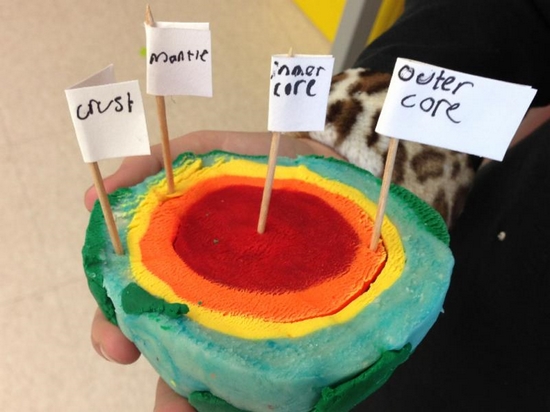
Students modelling the layers of the Earth using play dough.
